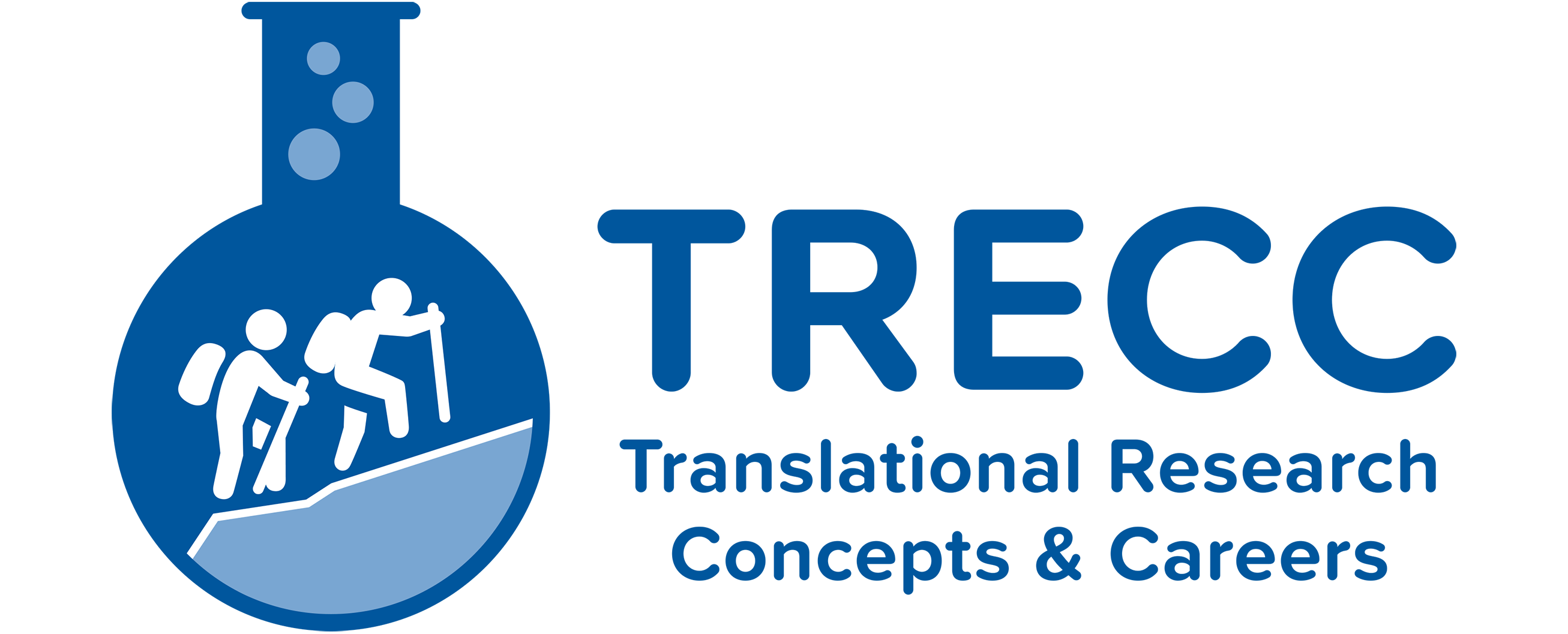Articulating Questions, Generating Hypotheses, and Choosing Study Designs
 While clinical and translational research studies can be quite complex, at a basic level most follow a standard study life cycle. The lifecycle begins with an idea, observation, or question, which leads to a hypothesis (or a statement about what researchers believe the results of the study will show). To test the hypothesis, researchers design and implement an appropriate study. Study data are then collected and once the study is completed, the data are analyzed using statistical methods appropriate for evaluating the hypothesis of interest. Finally, the researchers draw conclusions from the statistical analysis and report the findings of the study. Every phase of this process must have three important characteristics: integrity, transparency, and reproducibility.
The purpose of this online course is to introduce the basic structure of a clinical research study for learners who are new to clinical research and collaboration. After completing this course, you will be able to:
While clinical and translational research studies can be quite complex, at a basic level most follow a standard study life cycle. The lifecycle begins with an idea, observation, or question, which leads to a hypothesis (or a statement about what researchers believe the results of the study will show). To test the hypothesis, researchers design and implement an appropriate study. Study data are then collected and once the study is completed, the data are analyzed using statistical methods appropriate for evaluating the hypothesis of interest. Finally, the researchers draw conclusions from the statistical analysis and report the findings of the study. Every phase of this process must have three important characteristics: integrity, transparency, and reproducibility.
The purpose of this online course is to introduce the basic structure of a clinical research study for learners who are new to clinical research and collaboration. After completing this course, you will be able to:
- Describe the basic lifecycle of a clinical research study
- Define research integrity, transparency, and reproducibility
- Given a research article, identify the research question, the primary outcome and how it’s measured, the null and alternative hypotheses, and the study design
- Distinguish between experimental and observational studies and the advantages and disadvantages of each
Resources
Resources and literature related to study lifecycle and designs
Resources:
Resources:
- American Statistical Association: This is Statistics: A website designed for individuals who are interested in pursuing a career in statistics.
- Duke Clinical and Translational Science Institue: Biostatistics, Epidemiology, and Research Design (BERD) Methods Core
- Duke Department of Biostatistics and Informatics
- Duke University Libraries: Center for Data and Visualization Sciences
- Edge for Scholars: Don’t Let Your Research Questions Go Out Without PICOTS
Terms and definitions related to study lifecycle and designs
- Research Integrity is the use of honest and verifiable methods in proposing, performing, and evaluating research. Reporting research results with adherence to rules, regulations, guidelines, and following accepted professional codes or norms.
- Research Transparency is open and free access to the data, methods, and coding scripts used to conduct the research.
- Research Reproducibility means that others should be able to independently replicate research findings.
- Research Misconduct is falsification, fabrication, or plagiarism in proposing, performing, or reviewing research, or in reporting results.
- Research Question is what you want to find out. A research question is established from an observation or pattern, gaps in existing literature, or extension, modification, or improvement of current practices.
- Hypothesis is a statement about what the researcher thinks the results of a study will be.
- An observational study design is when the researcher observes the effect of a specific variable as it occurs naturally, without making any attempt to intervene.
- An experimental study design is when an intervention is involved. The researcher manipulates the situation and observes the effect in a more controlled setting. There are a few different types of experiments, including randomized experiments and controlled experiments.
